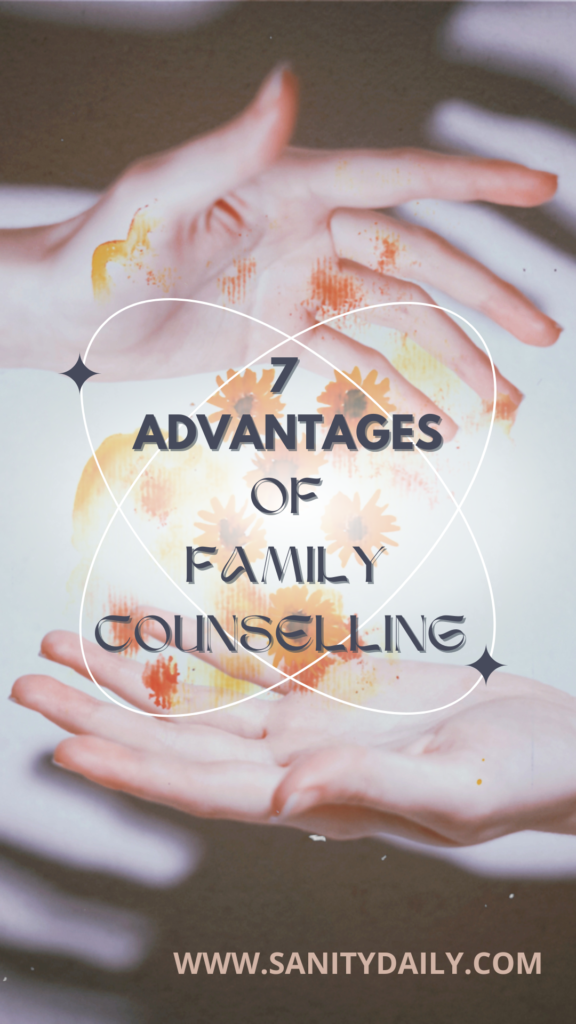Family counselling is exactly how it sounds: psychological counselling involves family members to help resolve internal conflicts and improve communication. Whether conducted in an office, at home, or on Facetime, family therapy should be performed by a licensed therapist or a clinical social worker. A list of the best family therapy sites can be all you need to get started.
There’s a common adage that we can pick our friends, but can’t pick our family. It’s common to have relationship difficulties within families, but unlike friends, they’re harder to cut out. Rightly or wrongly, we feel the need to spend more effort into maintaining or ‘fixing’ our family relationships because it’s deemed the most important thing in life.
Situations Where Family Counselling Could Be Beneficial
The first scenario in which family therapy is used is when there’s currently a difficulty in communicating with family members, be it siblings, parents, or in-laws. Many feel like they are disconnected from them, and therapy helps with communication. Family counselling will not only “force” a conversation because a lack of communication is a common issue, but they will somewhat mediate and help give everyone a voice.
This is equally as useful when there’s a negative atmosphere in the home. A negative atmosphere shouldn’t just be the unacknowledged elephant in the room.
Another common scenario to seek out family counselling is when there’s a bad relationship with the in-laws – a long-running joke in many communities. But, it’s no laughing matter when it becomes a serious issue and impacts the relationship between the couple – for example, arguing over where to spend Christmas or reluctance to visit family members.
Many people just get on with their in-laws not liking them. Counselling could help work out what exactly causes the negativity from both sides, and what could be done to improve it. Inevitably, the awkwardness could feel unbearable, but suggesting family counselling in and of itself can show good intent – that you’re willing to work on improving the situation, which is a big thing.
Another scenario is if the family has gone through a traumatic experience, such as a death in the family, a divorce, or some other kind of family drama that would make the relationship in the whole family difficult. Grief counselling and marriage counselling go hand-in-hand and often overlap with family therapy.
Finally, family therapy is often used when there’s a problem with someone’s mental health in the family. For example, a father with an alcohol addiction or a child with schizophrenia. Individual therapy is always recommended for the subject in question, but family therapy is commonly effective as a supplement to the individual, as well as helping other family members. It can bring a stronger structure to the family and give the chance for members to express how much the subject in question matters to them in regards to getting treatment.

Advantages of Family Counselling
Many ask, is family therapy effective? Here is a list of well-documented advantages to getting family therapy:
- Strengthening relationships. Family therapy is well documented in how effective it is at strengthening relationships between family members through communication.
- Improved communication. Individuals in the sessions can learn better ways of communicating generally, as well as specific tips to help speak to each other
- Helps when dealing with trauma. Trauma can be both devastating and tricky, which is why a professional is recommended when working through it.
- Understanding each other’s needs and wants. Therapy sessions can give each other a chance to express their wants and needs in a safe space with a mediator.
- Working through hardship together (divorce, death, etc). Therapy is useful when going through hardship, but hardship is often endured by more than one person, which is why family therapy can be particularly targeted and helpful.
- Improving emotional intelligence. Understanding other family members better can improve your overall emotional intelligence, which carries through into other areas of your life (i.e. work, future children).
- Co-parenting successfully after a breakup. Family therapy can be a way to help kids understand their new family structures and talk through sudden changes in parenting roles.
Some cons of Family Therapy
Below is a list of potential limitations and downsides to family therapy.
- Cost. Therapy can be costly (particularly traditional therapy), and insurance may not always cover it. Even with co-pay, it can be too much for some families – even more so if finances are the source of their relationship problems. Family counselling online could be a solution to this as it’s cheaper.
- Emotionally challenging and intense experience. Exposing your family to your negative feelings or trauma that they may not know about can be challenging. Whilst we should trust a licensed therapist, unearthing bottled-up feelings can be intense and tricky.
- Getting worse before it gets better. There might be a temporary increase in awkwardness, negativity, or fights. This is because bottled-up issues are brought to the forefront and conflict can ensue from the sessions. Of course, this is supposed to be a short-term downside, a necessary challenge, before issues are dealt with properly and we become better off in the long run because of it. But, we are under no guarantee that family members will continue sessions for the long haul.
Final Word
Therapy may or may not still have a stigma, but one thing is for certain: its effectiveness is not controversial. If it wasn’t for money, everybody would be recommended to get therapy, but it is clear that not everybody can. Whilst it can be challenging at times, particularly at the beginning, family therapy shows time and time again that even the most dysfunctional of families can improve their relations, or at the very least, their communication with one another. This is perhaps why online therapy has become so popular in the past few years. Lockdowns pushed many into depression, and it was only the online apps that were offering an affordable service to help.








